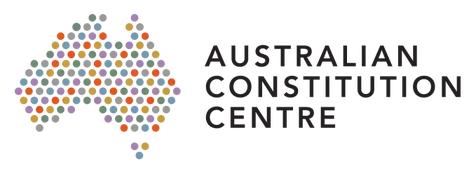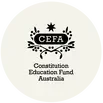Below are linked some relevant resources from other institutions, organisations and stakeholders that complement the materials provided in our program.
Federal Parliamentary Education Office (PEO) – https://peo.gov.au/
The Parliamentary Education Office (PEO) provides parliamentary education programs, onsite activities and online information resources to schools, teachers and students.
Through relevant programs and resources, the PEO enables Australians to better understand the role, function and value of the Australian Parliament, and actively engage with it. The PEO produces information that is current, accurate and impartial. Their work includes:
- Immersive learning programs that give primary and secondary students hands-on experience of how Parliament works to make Australia a better place to live. Year 5 and 6 visitors to Parliament house role play being in a parliament and passing legislation. Programs are delivered at Australian Parliament House, at schools during national outreach and via video conferencing;
- print and digital resources that enable teachers and students to better understand Australia’s democratic system of government;
- teaching resources linked to the Australian Civics and Citizenship Curriculum, including units of work, lesson plans and other learning materials; and
Australian Electoral Commission
The Australian Electoral Commission (AEC) delivers the franchise: an Australian citizen’s right to vote. It conducts federal elections and referendums and maintains the Commonwealth electoral roll. The AEC also informs Australians about enrolling and voting. They offer a range of onsite programs for school students at Old Parliament House Canberra. These include experiencing representation and preferential voting, referendums, senate voting and skills required for voting as an eligible elector.
- National Electoral Education Centre – https://education.aec.gov.au/visit-us/
Senate Wing, Old Parliament House
King George Terrace
Parkes ACT 2600 - Get Voting – https://education.aec.gov.au/getvoting/
- Visit AEC – https://education.aec.gov.au/visit-us/
- Democracy Rules resource – https://education.aec.gov.au/democracy-rules/
- Making a Nation: The development of Australia’s Self-Governance and Democracy – https://education.aec.gov.au/making-a-nation/
- Teacher Resources – https://education.aec.gov.au/teacher-resources/
The Museum of Australian Democracy at Old Parliament House (MoADOPH) – https://www.moadoph.gov.au/learning/
The Museum of Australian Democracy at Old Parliament House is a living museum of social and political history, located in a nationally listed heritage building in Parkes, Canberra.
The Museum of Australian Democracy at Old Parliament House helps people to understand Australia’s social and political history by interpreting the past and present and exploring the future. Onsite they provide a Prime ministers gallery and activities related to Parliamentary debates both contemporary and historical. They achieve this by:
- bringing alive the importance of Parliament in the lives of Australians;
- interpreting, conserving and presenting the building and our collections;
- providing entertaining and educational public programs; and
- providing a range of other services that enhance the visitor experience.
- Resources https://www.moadoph.gov.au/learning/resources/
The Australian Institute of Aboriginal and Torres Strait Islander Studies (AIATSIS) – http://aiatsis.gov.au/research/guides-and-resources
The Australian Institute of Aboriginal and Torres Strait Islander Studies (AIATSIS) is a world-renowned research, collections and publishing organisation. We promote knowledge and understanding of Aboriginal and Torres Strait Islander cultures, traditions, languages and stories, past and present.
We care for a priceless collection, including films, photographs, video and audio recordings as well as the world’s largest collection of printed and other resource materials for Aboriginal and Torres Strait Islander studies. We undertake and encourage scholarly, ethical, community-based research in a variety of sectors, including health, native title, languages and education. Our publishing house, Aboriginal Studies Press, regularly publishes outstanding writing that promotes Australian Indigenous cultures.
Our activities affirm and raise awareness of the richness and diversity of Aboriginal and Torres Strait Islander cultures and histories.
We understand ourselves through places like AIATSIS. Through places like AIATSIS, we can wake up the people with knowledge… There might be precious mysteries to help us understand ourselves again. We can look to the past to find our way. Anta Jampijinpa Pawu-Kurlpurlurnu (Steve Jampijinpa Patrick), Lajamanu, NTCurriculum materials – http://aiatsis.gov.au/publications/products/subject-guide-indigenous-australian-curriculum-materials
National Library of Australia – https://www.nla.gov.au/using-the-library/learning
These resources give teachers flexibility. Activities are provided to focus students on key historical people and events that were significant in the development of the colonies. The highlight of the resource is the selection of sources from the National Library of Australia’s Treasures Gallery. Each of the key sources introduces a theme. The student activities that support the sources cater for a variety of classroom contexts and learning styles.
- Digital Classroom Year 5 – This resource is aligned to the Australian Curriculum: History for Year 5 students. It adopts an inquiry learning approach that develops students’ skills as historians. The resource engages students with a rich selection of historical sources and challenges them to draw their own conclusions about the development of the Australian colonies. The resource highlights indigenous experiences, the role played by significant individuals, convict experiences, daily life in the colonies and the reasons for migration to Australia. The resource also features significant colonial events such as the gold rush in Victoria, the Eureka Stockade and the Burke and Wills expedition, as well as frontier conflict.
https://www.nla.gov.au/digital-classroom/year-5
- Digital Classroom Year 6 – This resource is aligned to the Australian Curriculum: History for Year 6 students. It adopts an inquiry learning approach that develops students’ skills as historians. The resource engages students with a rich selection of historical sources and challenges them to draw their own conclusions about the development of Australia as a nation. It focuses on Australian sentiment leading up to Federation, the process of creating Australia’s constitution, and two notable experiences of democracy and citizenship. The resource also highlights the contributions of individuals to the arts and sport, as the nation developed as a society.
https://www.nla.gov.au/digital-classroom/year-6
National Archives Australia (NAA) – https://www.naa.gov.au/learn/school-visits
- Australian Prime Ministers – http://primeministers.naa.gov.au/
- Constitution for a nation – http://www.naa.gov.au/collection/explore/federation/constitution-website/index.html
- Documenting a Democracy – https://www.foundingdocs.gov.au/
Australian Citizenship Day, the Commonwealth Department of Home Affairs.
Curriculum linked resources are provided that explore Australian citizenship, including online interactive activities suitable for display on interactive whiteboards.
https://www.homeaffairs.gov.au/trav/citi/curr/even/australian-citizenship-day/schools
https://archive.homeaffairs.gov.au/Citizenship/Documents/primary_school_teaching_resource.pdf
- Citizenship in a democracy
- Government and law; values that are important to Australian democracy



